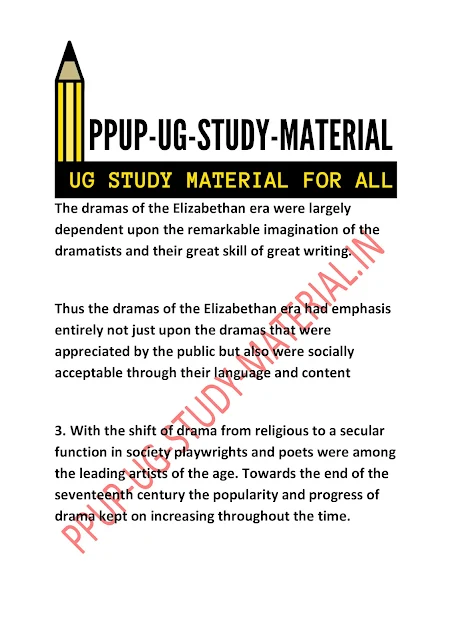Write a note on jacobean drama pdf free download - ppup part 1 english honours notes and study material pdf
[ Write a note on jacobean drama pdf free download | ppup part 1 english honours notes and study material pdf ]
In this BlogPost we'll cover These Topics - ppup part 1 english honours notes and study material pdf, PPUP part 1 english honours ug study material download, PPUP part 1 english honours ug study material free, PPUP part 1 english honours ug study material online, PPUP part 1 english honours ug study material pdf, PPUP part 1 english honours ug study material quora, patliputra university guess paper 2024 pdf, Write a short note on jacobean drama, Jacobean drama pdf, Characteristics of Jacobean drama, Jacobean drama wikipedia, Themes of Jacobean drama, What is Jacobean drama, Jacobean drama list, Elizabethan and Jacobean drama PDF, Write a note on jacobean drama pdf free download, Short note on jacobean drama pdf, Features of Jacobean drama
Introduction to the Write a note on jacobean drama pdf free download
Major Writers of Jacobean Age | ppup part 1 english honours notes and study material pdf
Major Prose Writer of Jacobean Age | ppup part 1 english honours notes and study material pdf
Question. Similarity Between Elizabethan and Jacobean drama | ppup part 1 english honours notes and study material pdf
Question. Why Jacobean era is considered a decline or Bad era for English literature? | ppup part 1 english honours notes and study material pdf
Question. Features of Jacobean drama | ppup part 1 english honours notes and study material pdf
Question. Brief Account of Jacabean age | ppup part 1 english honours notes and study material pdf
Conclusion for Write a note on Jacobean drama pdf free download
I hope You got what you were looking for ..reading this post Write a note on jacobean drama pdf free download | ppup part 1 english honours notes and study material pdf ... and if you got any query ..you can comment below so we can provide you further assistance.
































No comments